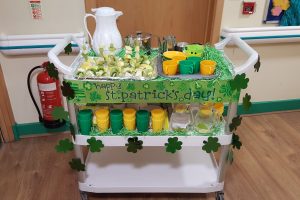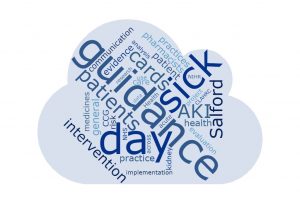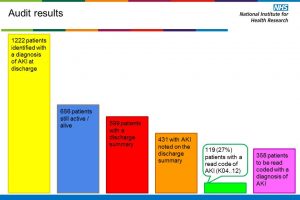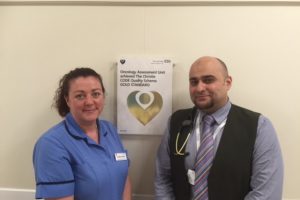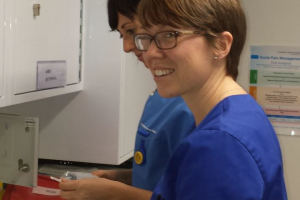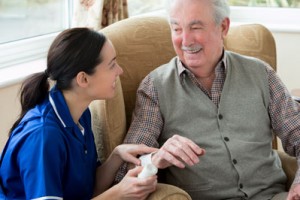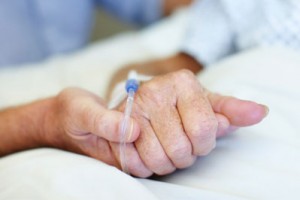Case studies
Education for prescribing for older people
Share this on – Facebook / Twitter / Linked In

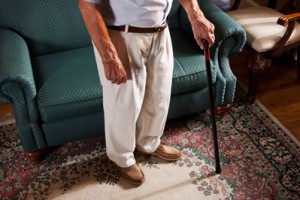
Mr J is a 78 year old man who lives in sheltered housing with his wife
Medical history: Chronic heart failure due to LV systolic dysfunction / Previous myocardial infarction / AF / Alzheimers dementia / Hypertension / Osteoarthritis / Previous DHS for fractured neck of femur / Benign prostatic hypertrophy
Current medications: Digoxin 125 mcg / Ramipril 2.5mg / Furosemide 40mg / Donepezil / Calcium and vitamin D / Alendronate weekly / Finasteride / Simvastatin / Paracetamol / Rivaroxaban
Mr J sustained a fall whilst out shopping with his wife, and badly bruised his knee. Attendance at A+E revealed no fracture; he had difficulty weight bearing but was discharged home with codeine.
A week later, his wife called the out of hours GP service, as he had been complaining of nausea and abdominal discomfort for several days. He had taken to bed, had not been eating or drinking, and had become progressively more confused.
His GP admitted him to hospital, where BP was found to be 80/40 mmHg, pulse was 35/min, creatinine was 257 umol/L, and potassium was 6.4 mmol/L
Last creatinine measured a year ago: 125umol/L (eGFR 48 ml/min)
Who would the learning opportunities be relevant to?
- Primary care teams, geriatricians, secondary care teams (including acute teams, cardiology teams)
- Patients and carers
Key Learning Opportunities
- Patient / carer education
- Sick day rules
- Prescribing education for prescribing in older people
- Education of all teams about common modes of decompensation in frail older people
From which Clinical Perspective?
- Primary care / community services
Case studies


